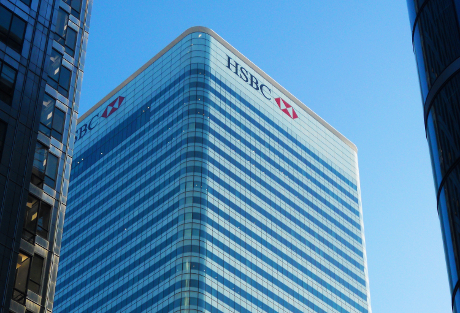Blog

Last week, HSBC announced that it was considering moving its headquarters from the UK.
Douglas Flint, Group Chairman of HSBC said: “It is also essential that we position HSBC in the best way to support the markets and customer bases critical to our future success. In this regard, we also have to take fully into account the repositioning of our industry being driven by the regulatory and structural reforms which have been put in place post crisis… the Board has therefore now asked management to commence work to look at where the best place is for HSBC to be headquartered in this new environment.”
Of course, politicians in the midst of a vicious election, where Britain’s continued membership of the EU is a contentious issue, have been quick to associate HSBC’s threat with the prospect of a ‘Brexit’. Shadow Chancellor Ed Balls said HSBC was “one more in a long line of companies… saying that Britain leaving the European Union, if the Tories get back in, is the biggest risk to investment and jobs”. Indeed, Britain’s membership of the EU is beneficial to businesses due to the single market allowing for free trade, no customs duties and tariffs and just one set of regulations as opposed to 27. Additionally, Flint is wary of the possibility of a ‘Brexit’, but analysts have suggested that the increase in the bank levy is the primary reason why HSBC is flirting with a move away from the UK.
The bank levy was introduced by George Osbourne in 2010 and came into force in 2011. It’s a tax on the value of all debts of UK banks and was introduced to discourage the questionable practices undertaken by bankers and mortgage lenders in the run-up to the financial crisis. Banking groups headed by a UK company, like HSBC, are liable for taxes on their global debts, whereas international banks with a UK office only have to pay tax on their activities in the UK. HSBC, therefore, pay significantly more of this tax than the likes of JPMorgan. Additionally, despite the fact that HSBC didn’t require a penny from the UK government when the banks needed bailing out in 2008, it paid some £750m of a total of £1.9bn last year. By moving its headquarters elsewhere, HSBC could release a significant amount of cash whilst retaining a presence in the UK.
Given that every £8 of £10 profit HSBC makes comes from the Asian market, a move to Hong Kong seems probable. New York is off the list, due to HSBC being involved in supporting Mexican drug cartels. London also remains a safe option due to the capital markets and legal framework surrounding the City. The rate of the bank levy tax stands at 0.21% with all main parties proposing that the rate remains at this level or is raised; Labour are proposing an increase in order to fund more hours of free childcare. However, with HSBC flexing its muscle and threatening leaving the UK, which would halve its contribution to The Treasury’s coffers through the bank levy, whoever is Chancellor of the Exchequer following May 7 will have some serious thinking to do.
Academy tools to help you get a job
-

Free Watson Glaser Practice Test
Understand the test format, compare your performance with others, and boost your critical thinking skills.
